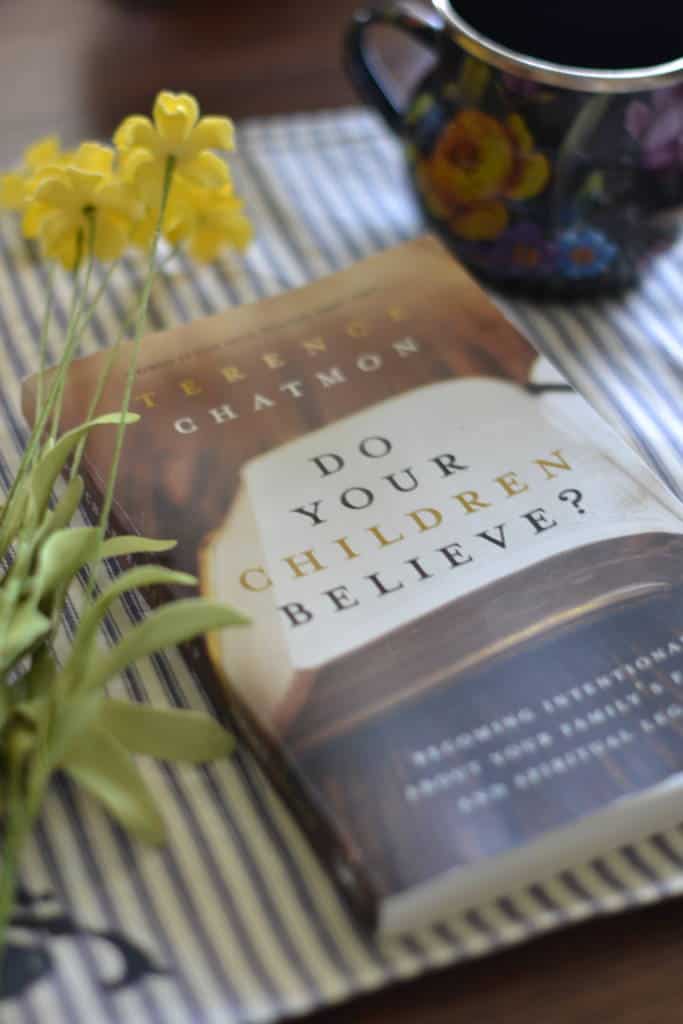One of the biggest challenges that I faced when taking the Cupcake out of her private Christian school to attend a local STEM school, was that I’d be removing her daily walk of faith. Part of her curriculum at the private school was daily devotionals, prayer, and lessons on living as the bible teaches us. I reasoned that of all her daily lessons, this was actually the ONE responsibility that I could take on that I might be successful at because believe me when I say, the “new math” is not something I’m going to excel at teaching her.
But I’ll be honest. I haven’t been very good at replacing those dedicated moments on the daily. Sure, we talk about how we can make choices to be a better Christian, but I’m falling short on my regular duties. I was pretty excited when I saw this book being released.
In Do Your Children Believe?: Becoming Intentional About Your Family’s Faith and Spiritual Legacy“> Terence Chatmon’s, “Do Your Children Believe?,” the focus is on faith-based learning and understanding for the family. Chatmon’s concern is that parents are not teaching their children to grow in faith, despite encouraging them in so many other areas of their lives. (Yeah, that kinda resonated with me.) With that in mind, he gives parents some practical steps they can take in order to help their children believe and see the importance of a faith-based life. There are different ways to go about that and unique options to consider, depending on each family’s situation.
By presenting a lot of different choices of how to reach out to children and help them grow spiritually, Chatmon gives hope to many families. He points out that society is only one generation away from unbelief, because raising families in a faith-based manner is slowly dying out. If parents don’t raise their children that way, the children will not raise their children that way. They simply will not know to, and faith-based parenting could disappear from the majority of families and households across the country.
Making it fun and having a plan are the two best ways to keep faith-based learning present in the family unit. Thankfully, Chatmon assures that being a Bible scholar is definitely not necessary in order to keep children actively engaged in what parents are trying to teach them. There are many ways to offer Biblical lessons about God, and about doing what is right and avoiding what is wrong. Faith-based parenting doesn’t have to be a strict, stringent set of rules and regulations that children must memorize. It can be a far more enjoyable, valuable experience.
Parents know they have obligations to their children, and responsibilities to ensure that those children are cared for and nurtured. While there is a focus on health, grades, and making friends, many parents fall short when it comes to talking about and sharing their faith with their children. This shouldn’t be the case, but not every parent is sure how to address faith-based issues, especially with smaller children who may not yet understand some of the larger concepts.
Do Your Children Believe?: Becoming Intentional About Your Family’s Faith and Spiritual Legacy“>Chatmon’s book promises that “This is not a program,” and “This is actually a new kind of lifestyle.” I’ll be honest, this is written for the person who wants a step-by-step outline of how to be intention about focusing on faith – it’s not a light read. It’s also not filled with resources that you can draw upon, it simply helps you lay the framework for your future teachings. Be sure to read to the end, because that’s where the gold is. The appendix offers a sample devotional plan, and a spiritual development plan to serve as guides for parents and for anyone who has a child and wants to encourage and discuss the value of faith throughout life. With a helpful and thought-provoking book like Chatmon’s, parents can get a blueprint for staying on course for faithful parenting.
I received a complimentary copy of Do Your Children Believe for the basis of this review. All opinions are my own.




0 Comments